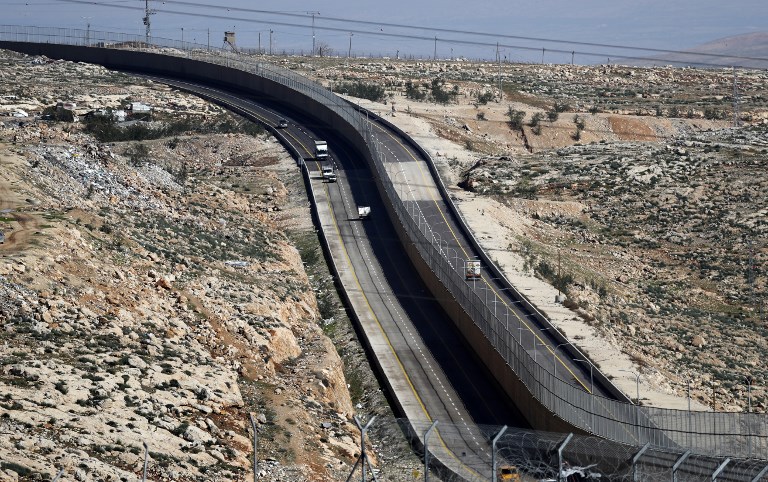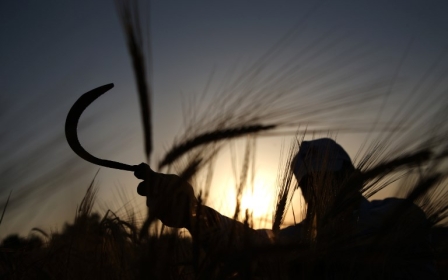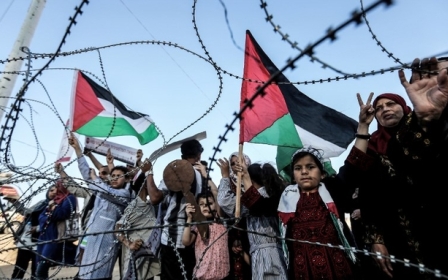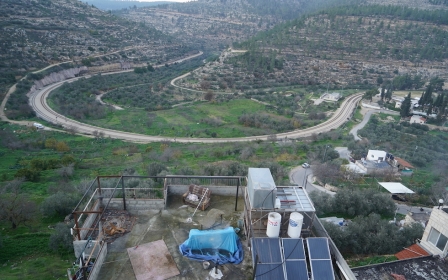How local resistance challenges power structures in Palestine
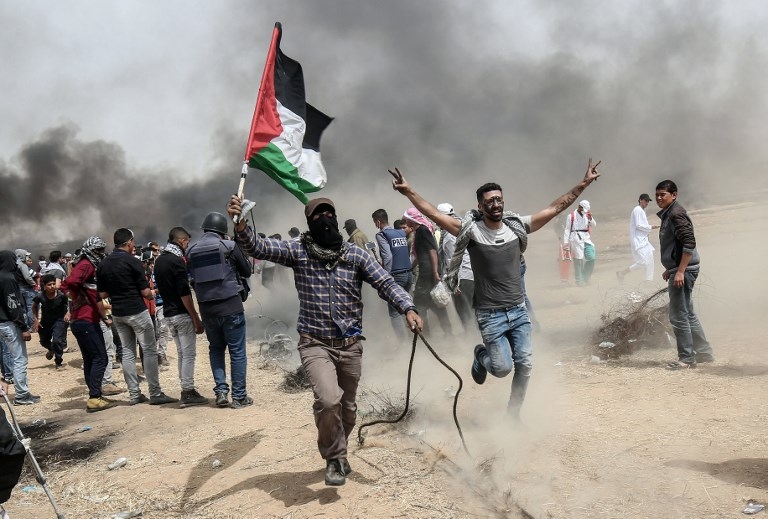
On 23 January, Israeli bulldozers razed some 15 dunams (3.7 acres) of Palestinian agricultural lands in the Wadi al-Samn area of southern Hebron in the occupied West Bank.
Days earlier, in the village of Battir, Israeli bulldozers razed and leveled another 15 dunams of Palestinian agricultural lands, uprooting about 60 olive trees. Battir is on the UNESCO world heritage list for its terrace farming and irrigation channels.
Also in January, Israeli settlers chopped down 40 Palestinian-owned olive trees in al-Mughayyir village in Ramallah. The village has come under increasing attacks by Israeli settlers, according to the Ma’an News Agency, including the running-over of flocks of sheep, uprooting of trees, seizure of land, and burning of local mosques.
Escalating violence
The escalation of settler violence was evident again this past week, when Israeli settlers attacked Mughayyir. The UN human rights office said it was “deeply concerned about the protracted and extremely violent attack” that led to the killing of Hamdi Naasan, a 38-year-old father of four.
New MEE newsletter: Jerusalem Dispatch
Sign up to get the latest insights and analysis on Israel-Palestine, alongside Turkey Unpacked and other MEE newsletters
Since Israel’s occupation of the West Bank, including East Jerusalem, in 1967, more than half a million Israelis have moved into Israeli settlements in occupied Palestinian territory, in violation of international law.
Settler violence has social and economic effects, with the UN noting: “Olive-based livelihoods in many areas of the West Bank are undermined by Israeli settlers who uproot and vandalize olive trees, and by intimidation and the physical assaults on farmers during the harvest itself.” The number of violent incidents has been on the rise.
Settler-colonial violence ... has 'gradually dispossessed Palestinians of more and more areas in the West Bank, paving the way for a state takeover of land and resources'.
According to the Israeli human rights group B’Tselem, “settler violence and vandalism takes place with full backing by the Israeli authorities. Sometimes soldiers take part in the assault; at other times, they stand idly by. The police [make] no substantial effort to investigate the incidents, nor … to prevent them or stop them in real time.”
Settler-colonial violence in the West Bank benefits Israel because it has “gradually dispossessed Palestinians of more and more areas in the West Bank, paving the way for a state takeover of land and resources”.
In our new book, Palestine and Rule of Power: Local Dissent vs. International Governance, we explore the structures and processes that explain these expressions of violence and Palestinian resistance. In particular, we examine the impacts of settler-colonialism and neoliberalism in Palestine today, along with forms of everyday resistance to both.
Legacy of settler-colonialism
As the opening stories illustrate, the role of land is central in settler-colonial struggles. Our book takes a close look at the legacy of settler-colonialism in Palestine - how it has destroyed in order to replace, and renamed in order to erase.
The second expression of power our book considers is the neoliberal political and economic order defining appropriate behaviour in late modernity, seen most clearly in Palestine in the state-building project. Over the last quarter-century, since the Oslo Accords and the establishment of the Palestinian Authority, the rule of power has been displayed through institution-building agendas and commitments, and expressed in terms of humanitarianism, foreign aid and dependency.
Richard Falk, the former UN special rapporteur for human rights in Palestine, says this neoliberal approach to “peace” has set the stage for what US President Donald Trump calls “the deal of the century” - the essence of which is an economic agenda that, when applied to the structural realities of Palestine, ends up hardening security and softening resistance without changing the victimisation of Palestinians.
Our book explores how neoliberalism and settler-colonialism interact to express a specific kind of power that rules in Palestine today, while also looking at resistance and local dissent.
Such resistance was recently evidenced when Palestinian, Israeli and international activists shut down the recently opened “Apartheid Road” near Jerusalem, which has a wall along its entire length, dividing Palestinian and Israeli drivers.
It has also been observed each Friday as thousands of Palestinian civilians in Gaza have participated in the Great March of Return, calling for an end to the Israeli siege and demanding their right of return.
Mobilising aid
Various elements aim to silence this local resistance; international aid is a key instrument mobilised for this purpose. While international aid had failed to bring a lasting peace to Palestine-Israel, it has successfully set the rules for a securitised version of peace and securitised processes of state-building and political reforms, which criminalise Palestinian resistance.
Falk notes that the achievements and potential of ongoing resistance efforts, as well as their critique of the effects of relying on a neoliberal reconstruction of a people living under oppression, offer important insights into what is happening in Palestine and what needs to be done if a just peace is ever to be realised.
Despite Israel’s flagrant violations of international law and the stark failure of the formal Palestinian leadership to address the aspirations of the Palestinian people, the transformative potential of a mobilised, resourceful and resilient people should not be overlooked.
- Timothy Seidel is an assistant professor at Eastern Mennonite University, and Alaa Tartir is a programme adviser to Al-Shabaka: The Palestinian Policy Network. Tartir and Seidel are the co-editors of Palestine and Rule of Power: Local Dissent vs. International Governance, Palgrave Macmillan, 2019.
The views expressed in this article belong to the authors and do not necessarily reflect the editorial policy of Middle East Eye.
Middle East Eye delivers independent and unrivalled coverage and analysis of the Middle East, North Africa and beyond. To learn more about republishing this content and the associated fees, please fill out this form. More about MEE can be found here.


